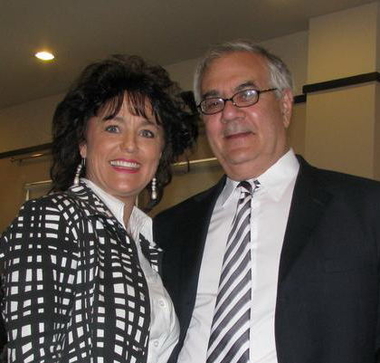Frank rejected as temporary Senator in Mass.

Massachusetts Governor Deval Patrick selected his former chief-of-staff William “Mo” Cowan as interim US Senator from Massachusetts, rejecting former Congressman Barney Frank. Frank had been the only person who had openly expressed interest in being appointed to the seat. Patrick gave no reason for not selecting Frank. Cowan will serve until the results of a June special election are known.
Other names that had drawn speculation included Carol Fulp, a Boston business and civic leader; Victoria Kennedy, widow of the late Democratic Sen. Edward Kennedy; and former Democratic Gov. Michael Dukakis. Patrick says Cowan's role in helping turn around the Massachusetts economy in recent years "has earned him the respect and admiration of people throughout government." He says the state will benefit from Cowan's wisdom and good judgment.
Cowan, a North Carolina native, says he is "honored and humbled" by the appointment. Cowan is the former chief of staff and chief legal counsel to Patrick. He served in the administration since 2009.
Patrick had said his selection would be a person who is not planning to run in the special election and someone who will be "a good steward" for the commonwealth until voters have their say during the special election. Frank is considered an expert in governmental finance; he was the leading Democrat on the House Financial Services Committee beginning in 2003, and was its Chair from 2007 to 2011.
Barney Frank came out as gay in 1987, the first member of Congress to do so. In July 2012 he married his long-time partner, James Ready, becoming the first member of Congress to marry someone of the same sex while in office. He had indicated he waasn't interested in the position long term, but thought he was the best fit for the interim job.
The race to replace Kerry is slowly beginning to shape up.
The only announced candidate is U.S. Rep. Edward Markey, the longest serving member of the state's all-Democratic congressional delegation.
Markey has already won the backing of Victoria Kennedy and the chair of the Democratic Senatorial Campaign Committee. Kerry has also signaled his support for Markey, stopping short of an outright endorsement.
Markey had hoped to clear the Democratic field to avoid a primary, but fellow Democratic Congressman Stephen Lynch is widely expected to announce he is a candidate.
Lynch will tour Massachusetts on Thursday with stops in Springfield and Worcester and an evening event at Iron Workers Local 7 in South Boston.
Lynch said he's not worried about any Markey fundraising edge. Markey has about $3.1 million in his account compared to Lynch's $740,000.
"I'm not really trying to purchase the election. I'm actually trying to earn it," Lynch said.
The Boston Democrat also dismissed concerns he may be too conservative to win a Democratic primary. Lynch voted against President Barack Obama's 2010 health care law. Lynch also said the truncated nature of the special election is a challenge for every candidate.
"Mr. Markey has 90 days, too," Lynch said. "It's not enough time, but it is what it is."
Brown's allies say the Republican senator is encouraged by the likelihood of a Democratic primary and the lack of a Democrat with statewide appeal.
Brown won the 2010 special election for Kennedy's seat following Kennedy's death, but lost a bruising re-election battle last year to Democratic Sen. Elizabeth Warren. He remains popular among voters and still has a statewide political organization.
Brown has demonstrated an ability to raise tens of millions in campaign donations and would be considered a front runner, although he would still encounter the hurdles any Republican faces in Massachusetts, which typically favors Democrats.
The primary is set for April 30.
Timing is tight. Candidates will have just four weeks to collect the 10,000 signatures needed to get on the ballot. There's also little time to do the fundraising and statewide campaigning needed to secure a victory.
Whoever wins will face a re-election campaign in 2014.
Markey publicly challenged all Democratic and Republican candidates who might jump into the special election to agree to keep outside groups from spending money on political ads — similar to the so-called "people's pledge" in last year's Senate race, which was also the most expensive political contest in state history.
Kerry has represented Massachusetts in the Senate for nearly three decades. His departure brought praise from top elected officials Tuesday. Patrick called Kerry "our steadfast champion" for Massachusetts.
"We are sad to lose him as our senator, but excited about and grateful for his service to the nation on the international stage," Patrick said.
Warren, who becomes the state's senior senator after less than a month in office, called Kerry "a true statesman" whose life experience "uniquely qualifies him to represent the people of the United States around the world."
In his resignation letter, Kerry talks about his "great gratitude to the people of Massachusetts for the privilege of serving them for 28 years."
His resignation takes effect at 4 p.m. Friday.
Compiled from AP dispatches





